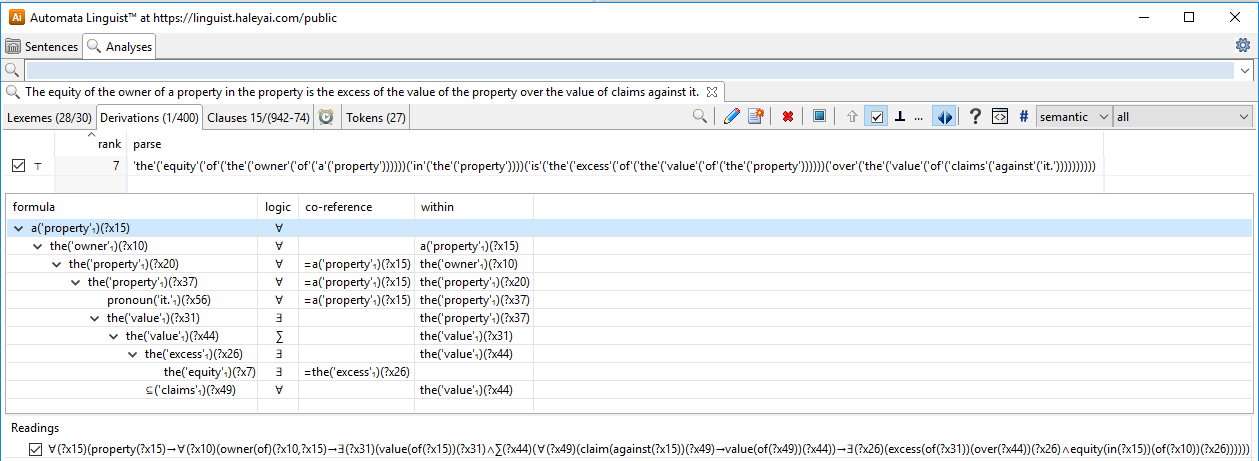Business logic is not limited to mathematical logic, as in first-order predicate calculus.
Business logic commonly requires “aggregation” over sets of things, like summing the value of claims against a property to subtract it from the value of that property in order to determine the equity of the owner of that property.
- The equity of the owner of a property in the property is the excess of the value of the property over the value of claims against it.
There are various ways of describing such extended forms of classical logic. The most relevant to most enterprises is the relational algebra perspective, which is the base for relational databases and SQL. Another is the notion of generalized quantifiers.
In either case, it is a practical matter to be able to capture such logic in a rigorous manner. The example below shows how that can be accomplished using English, producing the following axiom in extended logic:
- ∀(?x15)(property(?x15)→∀(?x10)(owner(of)(?x10,?x15)→∃(?x31)(value(of(?x15))(?x31)∧∑(?x44)(∀(?x49)(claim(against(?x15))(?x49)→value(of(?x49))(?x44))→∃(?x26)(excess(of(?x31))(over(?x44))(?x26)∧equity(in(?x15))(of(?x10))(?x26))))))
This logic can be realized in various ways, depending on the deployment platform, such as:
- In in Flora, for example, (and in most Prolog’s) there are aggregation operations that will build a list of answers (e.g., bindings of ?x44 above). Then a simple predicate would compute the desired aggregate.
- In SQL, a “SELECT SUM (value) WHERE … statement might be issued as an inner join given an outer selection of properties and their owners (or the specification of either or both in the query).
A competent business rules management system (BRMS) should be able to handle even more than classical logic and relational algebra. It should be able to handle exceptions and preferences, as in the Semantics of Business Vocabulary and Rules standard (SBVR).
SBVR is a good specification, if you ignore its suggestions regarding stilted English. The fact that SBVR has not been more widely adopted is due to limitations of BRMS vendors’ technology, not its awkward English, however.
For more details, see the Confessions of a Production Rule Vendor pages (part 1 and part 2).

